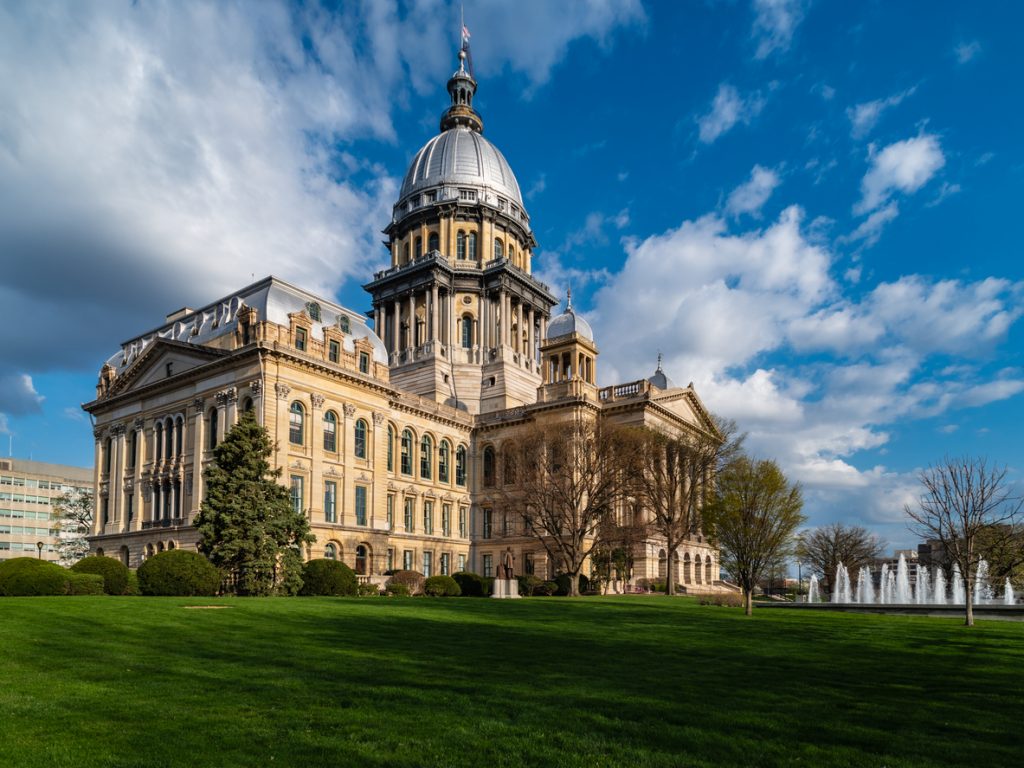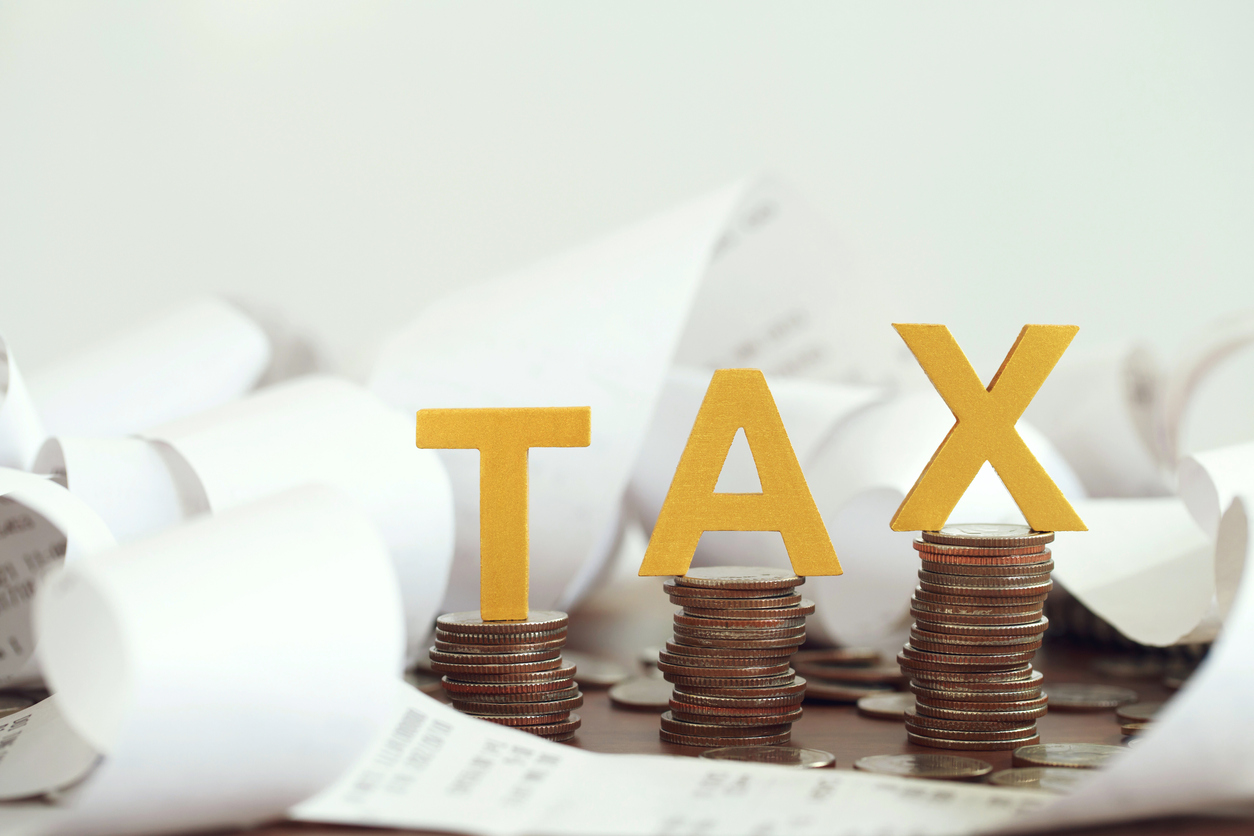
On April 19, Governor JB Pritzker signed the FY 2023 Illinois state budget into law, including $1.8 billion in tax relief. Highlights include rebate checks for working families, grocery tax suspension, property tax rebates, gas tax freeze, and more. The budget consists of projected revenues of $46.329 billion and expenditures of $45.986 billion, leaving a $444 million surplus. The budget also appropriates Illinois’s remaining American Rescue Plan Act (ARPA) federal funding, totaling $4 billion.
Highlights from the Illinois FY 2023 budget include:
Tax Relief
The $1.8 billion in tax relief includes:
- $400 million – suspending tax on groceries for one year;
- $70 million – freezing motor fuel tax for six months;
- $520 million – one-time property tax rebate (Five percent of property taxes paid, up to $300 per household);
- $100 million – permanently expanding the earned income tax credit;
- $685 million – direct rebate checks ($50 per person and $100 per dependent, up to three children per family); and
- $50 million – “Back to School” sales tax holiday on clothing and school supplies for a week in August and doubles the tax credit for teachers who buy classroom supplies.
Public Safety & Violence Prevention
- Approximately $1 billion for violence prevention, youth employment, and diversion program appropriations to deliver a multi-year investment in these programs far exceeds previous levels. Includes appropriations for Reimagine Public Safety and R3 grants;
- 300 new State Police troopers, the single most significant dollar investment in state history to expand cadet classes;
- $50 million increase directly from cannabis revenues to support communities harmed by violence, excessive incarceration, and economic disinvestment;
- $240 million for the Reimagine Public Safety Act ($235 million ARPA, $5 million GRF);
- $30 million to support the Violent Crime Witness Protection Program;
- $20 million for grants to non-profits for security investments to prepare for hate crimes;
- $30 million for Local Law Enforcement Body Camera grants;
- $20 million for less-lethal device grants and associated training expenses;
- $10 million for the Co-Responder pilot program;
- $10 million for a local law enforcement retention grant program;
- $8 million for a multi-year equipment replacement program at the Illinois State Police that includes radios, body and car cameras, and cloud storage;
- $5.4 million for more staffing and new equipment at a new forensic lab in Decatur, after expanding state forensic capacity in Chicago and Joliet; and
- $20 million for cameras and automatic license plate readers on state roads.
Education
- $350.2 million increase for Evidence-Based Funding (EBF) for K-12 schools, to a total of $7.9 billion in EBF appropriations;
- $96 million increase for transportation and special education district reimbursements ;
- $54.4 million increase for Early Childhood Education;
- $300 million to Strengthen and Grow Childcare Grants;
- $601.5 million in support of need-based Monetary Award Program (MAP) funding, a one year $122 million increase, plus an expansion of the maximum award to 50% of tuition at public universities and coverage for an additional 24,000 students;
- A 5% operating budget increase for Public Universities and Community Colleges in FY 2022 through supplemental appropriations and a continuation of the 5% increase in FY 2023;
- $230 million to retire the unfunded liability for College Illinois! in P.A. 102-696, saving taxpayers $75 million in unnecessary costs over the remaining life of the prepaid tuition program; and
- Funding increase for minority teacher scholarships.
Healthcare
- $240 million in hospital tax relief through additional support to the Hospital Provider Fund;
- Hundreds of millions in grant funding for safety-net hospitals and other hospitals in the State from the General Revenue Fund and federal COVID-19 funding;
- Fully funds nursing home rate reform and a redesigned provider assessment to maximize federal dollars, encourage staffing and improve quality, with more than $700 million, all funds;
- Waives licensing fees for about 470,000 frontline healthcare workers;
- $180 million to preserve and expand the healthcare workforce, through Medicaid providers, concentrating on underserved and rural areas;
- Establishes the $25 million Pipeline for the Advancement of the Healthcare (PATH) Workforce grant program through the Illinois Community College Board; and
- $7.8 million increase for Nurse Scholarships and Grants in Illinois Higher Education institutions.
American Rescue Plan Act Funding
The budget also appropriates $4 billion in federal ARAP funding that the State has remaining, including $2.7 billion for the Unemployment Insurance Trust Fund. The remaining $1.37 billion will go towards:
- $320 million in state COVID-19 response operational appropriations for the Illinois Emergency Management Agency ($200 million), Department of Corrections ($50 million), Department of Human Services ($50 million), and Department of Public Health ($20 million);
- $380 million in pandemic support healthcare provider payments, including;
- $225 million for Nursing Homes
- $67 million for Hospitals
- $30 million for Ambulances
- $58.7 million for safety-net hospitals
- $235 million (plus $5 million GRF) to support violence prevention grants;
- $150 million for affordable housing programs;
- $83.4 million for violence prevention and interruption grants at Criminal Justice Information Authority (CJIA);
- Support for those impacted by the Pandemic through DCEO:
- $75 million for a hotel jobs recovery program
- $50 million for restaurant employment and stabilization grant program
- $50 million for arts-related grants such as live venue operators, performing or presenting arts organizations, arts education organizations, and museums or cultural heritage
- $15 million for tourism attraction development grants
Latest News
Photograph taken inside the state capitol of the spectacular 272-foot, 52 million-pound dome. On February 6, 2024, Pennsylvania Governor Josh Shapiro (D) delivered his 2024-25 Budget Address. Shapiro's 2024 budget aims to provide tangible benefits [...]
Photo credit: iStock.com/Sergey Demchenko Many states are ending the 2022 fiscal year with a budget surplus, resulting in significant legislative deliberations about the best way to utilize those funds. During the fiscal year 2021, some [...]
Photo credit: iStock.com/pcess609 Sales taxes are responsible for funding a sizeable portion of the majority of states' budgets. States implement sales taxes—both general and selective—on a wide variety of goods and services sold to consumers [...]
Photo credit: iStock.com/Darren415 On August 16, 2022, President Biden signed the Inflation Reduction Act (H.R. 5376) into law after the U.S. House and Senate passed the package in the first weeks of August. After over [...]






Stay In Touch